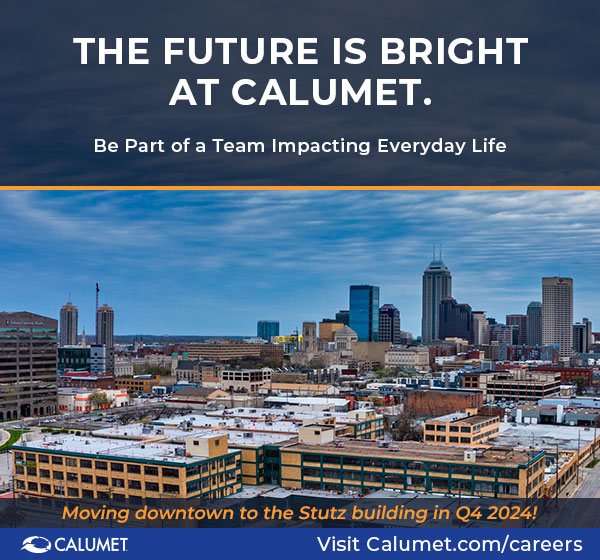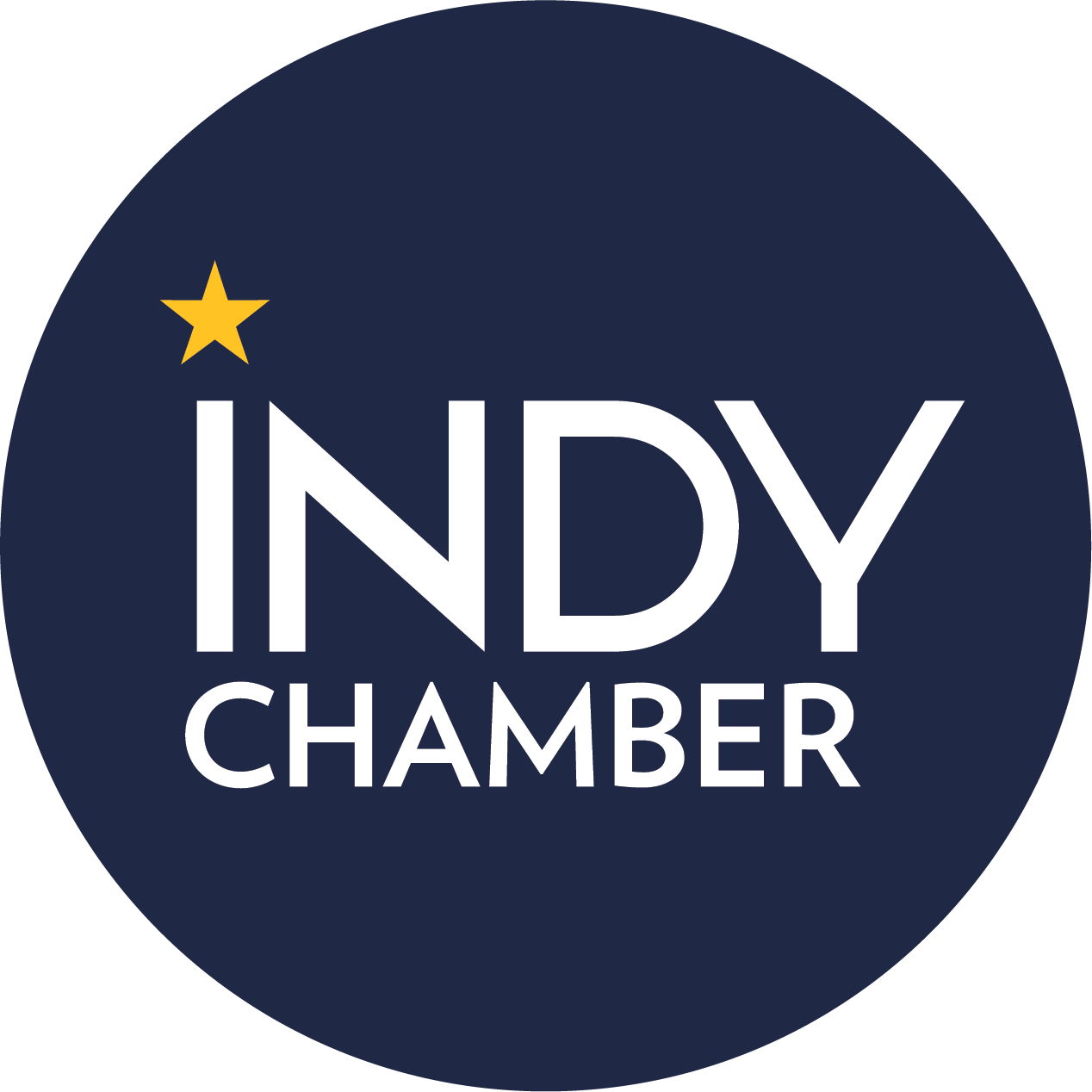Advocacy Overtime

Indy Chamber News Archives
But things haven’t slowed down since the legislature adjourned. We continue to craft long-term proposals for inclusive economic growth; the daily work of federal, state and local government goes on – demanding constant attention – and even with no elections this year, politics continues to shape policy.
Here’s an update on some of our work since Sine Die at the Statehouse:
The Marion County Transit Plan – rapid transit reality, a rescue plan for federal funding:
The City-County Council listened to the public and studied plans for improved transit, and approved the quarter-percent local income tax to allow IndyGo to start implementing sweeping improvements in access, frequency and convenience of service. The Indy Chamber continues to lead the Transit Drives Indy coalition and engage employers as these plans become reality – separating facts from fiction (and overblown fears) around construction of new rapid transit routes, the Red Line and (early outreach on) the Purple Line.
Speaking of the Red Line, our team swung into action when the initial budget plan from the Trump Administration zeroed out the federal Small Starts program that provided $75M in competitive grant funding to build the first leg of the route. We urged our congressional delegation to ask the administration to live up to this commitment and make the case for this critical project (also planned as the nation’s first all-electric bus rapid transit line). Ultimately, $50M was restored in a budget compromise and we continue to work with national partners like Transportation for America to revive andexpand transit programs.
Restructuring IPS to continue academic progress:
Another critical funding issue at the local level is K-12 education – most urgently, the structural deficits faced by the Indianapolis Public Schools (IPS) that threatens recent progress made by the district after decades of enrollment losses.
In 2013, the Chamber organized a group of corporate and civic leaders to conduct an Operational Analysis of IPS, bringing private sector expertise to the task of helping the district run more efficiently and shift funding from administrative expenses to academic needs – helping boost test scores and graduation rates.
Since the Operational Analysis was completed, IPS has executed on nearly 90% of its recommendations, slashing administrative costs by a third and saving millions of dollars a year. But funding shortfalls persist.
There’s one glaring area where IPS can save money without sacrificing scholastic priorities: Today, fewer than 5,400 students are spread among seven high schools with room for nearly 15,000. The best-utilized building fills just 60% of its available classroom seats; three schools operate at less than 30% capacity.
The Indy Chamber supports the plan proposed by the IPS Facilities Task Force (created as a finding of our Operational Analysis): Close two high schools at the very edges of the district – Broad Ripple (where many students come from other parts of the city) and John Marshall (which was already slated to become a middle school). Reopen Arlington and Northwest as middle schools, and sell two administrative buildings.
These moves are controversial, and emotions are running high among IPS families and alumni. We’re working to support the IPS board’s efforts and keep the focus on “students and teachers, not bricks and mortar.”
Indiana INTERNnet connects Indy employers with future talent, and vice-versa:
One trend in IPS is that more students are taking on co-op and internship programs. Once in college, internships are an especially important head start on career success. The Indy Chamber created the INTERNnet program more than a decade ago, building a centralized, online ‘clearinghouse’ for internships. Later, the program expanded across the state with oversight from the Indiana Chamber.
Recently, the Indy Chamber has gotten re-engaged in INTERNnet as a strategy for retaining young talent and helping employers grow – the advocacy team has adopted this effort as our own.
Indy is building a booming ‘advanced industry’ economy. But we can only keep up this momentum if we can meet the demand for STEM talent among our high-growth, high-tech employers.
We have built-in advantages in the race for talent: The state’s five largest college campuses are either in Indianapolis or just outside the metro; Indiana confers more bachelor’s degrees per capita than the national average.
But we falter in convincing these students to start their careers in Indianapolis. A recent analysis by the Battelle Institute notes that “…retention rates for engineering, biological science, and computer and information sciences student graduates [find] only 33-49% of in-state graduates and only 5-6% of out-of-state graduates working in Indiana.”
This is where a stronger ‘matchmaking’ effort between companies and potential interns can have a far-reaching economic impact. An earlier study by Battelle that included a survey of 2,000 current students and recent grads along with employers and university career services professionals showed that an Indiana-based internship increased the changes of the student staying in Indiana by 50%. With two internships under their belts, graduates are 70% more likely to begin their professional lives as Hoosiers.
As the state’s largest, most dynamicmetro region, Indy offers the quality of life and job opportunities that new grads want – we just need to connect them with our city and its employers. By refocusing on local promotion and adoption of INTERNnet since 2016, we’ve seen an 18% increase in filled internships through the site in Indianapolis.
Ex-offender re-entry efforts help employers, at-risk job seekers:
While it can be a challenge for recent college graduates to find the right job, those with a felony conviction on their record face massive hurdles to getting any work at all. We’ve made lowering these barriers a part of our legislative agenda, to help ex-offenders become productive taxpayers – and reducing the risk of recidivism – and make it easier for employers to give them another chance to enter the workforce.
With a strong push from the Indy Chamber team this year, the General Assembly passed legislation giving employers reasonable protection from civil liability in hiring ex-offenders. To further aid companies, the HIRE (Hoosier Initiative for Re-Entry) program was funded at roughly $1.3M in the biennial budget – workforce initiative provides screening, consulting and other assistance to businesses that hire ex-offenders.
We are also encouraged by Governor Holcomb’s issuance of an executive order banning automatic disqualification of applicants for state employment based on certain criminal offenses in their backgrounds.
Indy Chamber Policy Director Tim Brown is serving on the Marion County Re-Entry Commission, and the Business Ownership Initiative, part of the Indy Chamber's Entrepreneur Services division, has also launched a program providing small business and entrepreneurship training to ex-offenders (watch for more details in coming weeks about the ReEntry Entrepreneurship Development Initiative from BOI).
Continuing the Pre-K push:
The final pre-K plan that passed the General Assembly fell short of the $50M statewide expansion that ‘All IN for Pre-K’ advocates sought, but it represents positive movement…to recap:
- A total allocation of $44M, or $22M per year (with $1M allocated for a ‘remote learning’ iPad pilot);
- This doubles the existing pilot (in funding, if not total enrollment), while expanding the number of counties eligible to participate;
- However, the bill maintains at least current level of funding for original pilot counties (protecting existing programs in Marion County).
Now the challenge is keeping the forward motion going, continuing our advocacy with an eye towards legislative debates to come – building a statewide movement for accessible, affordable early learning opportunities that don’t leave any Hoosier kids out of the future economy.
The Indy Chamber wants YOU – see if you’ve got what it takes at HobNob, August 31st:
To get bold investments in priorities like pre-K, we’ll have to change some minds – and help elect like-minded public officials. That’s why the Indy Chamber’s annual Hob Nob event – coming up on August 31st – will feature a Political Bootcamp aimed at first-time candidates. With no elections this year, we’re focused on the future, including recruiting new voices from the private sector who can speak for the people and employers in Indiana’s largest region and dominant economy.
If you’re passionate about the issues we regularly discuss in our legislative update and events like Pancakes & Politics, there are lots of ways to get more involved. But perhaps the most direct is jumping into the arena yourself. The Bootcamp provides a primer on the political process, with session topics that include:
- Stories from state and local elected officials about their first campaigns – lessons learned, the “good, the bad and the ugly” of running for office;
- Building a campaign infrastructure and volunteer base;
- Fundraising – pitching individual donors, the role of PACs, party committees and other outside organizations and more;
- Turning your beliefs into a message, and measuring the results (polling);
- Overall campaign strategy, from door-to-door to big data tactics for contacting, persuading and turning out 50% + 1 of your electorate.
In short, the Political Bootcamp will provide a blueprint for turning rookie candidates into election night winners – learn more and register here.
Brookings Institute study on inclusive growth:
As seen in our Accelerate Indy strategy, the Indy Chamber is rethinking economic development beyond traditional incentives and what observers might typically consider “business issues” – we’re looking towards sustainable economic growth and a lasting competitive advantage for our member companies. That’s why our agenda includes long-term investments like pre-K, and why we’ve structured Hob Nob to prepare the next generation of Hoosier policymakers.
As part of this forward-thinking approach to building a stronger economy and business climate, the advocacy team is working with experts at the Brookings Institution and a small number of metropolitan peers to develop a long-range strategy for inclusive growth – innovative ideas to combat poverty and expand opportunity, helping more of our neighbors share in and contribute to the metro momentum we see in Indy. Stay tuned for more detailed as this important project takes shape.
Your Indy Chamber advocacy team has kept up a frenetic pace through 2016 and early ’17, working on behalf of an agenda aimed at making the Indianapolis region a more appealing place for growing employers, talented people, aspiring entrepreneurs and game-changing innovators. A few key highlights:
- The marathon push to modernize mass transit in Indianapolis finally crossed the finish line, with an historic referendum victory and bipartisan support in the City-County Council;
- Speaking of electoral success, the Chamber Business Advocacy Committee scored a gaudy 98% winning percentage among its endorsed candidates in the fall ’16 elections, including a pro-reform majority on the Indianapolis Public Schools board and a business-friendly field of new and incumbent legislators;
- The 2017 budget session of the General Assembly also ended on a high note – progress on issues like pre-K and a final budget with smart investments in education and workforce, public-private R&D initiatives, and forward-looking programs like Regional Cities.

Join Our Newsletter
Quick Connect Links


